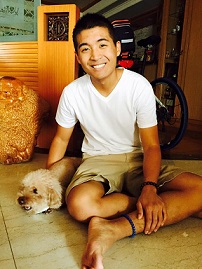How to really improve at chess (no gimmicks, no lying, just the cold hard truth)
I've been meaning to write this for a while but kept putting it off. Now that I have ten minutes of free time, I will finally take the time to write it!
As a self-trained player I have come to realize that there are so many educational resources (books, videos, streaming, etc) that improving at chess would appear to be so easy. In fact, for many players they would experience an amazing growth phase where rating points would just come, almost at will.
Then suddenly we plateau. At this point, we might start finally spending some money on chess. Buy an opening book, hire a coach. Buy some DVD's, there are no limits to how we can spend money. We then might improve a little bit, then we stop improving again. At this point many then conclude that they have done well enough, and start convincing themselves that they are already very good or worse, that they no longer have interest in chess.
Perhaps there is actually an elephant in the room. There is a big obstacle to chess improvement and that is... Everything I have just mentioned. The DVD's, the streaming, the books, and even often the coaches. When training, have you ever wondered what exactly was the point that you are supposed to learn? Or further: how you are going to apply this to improve your game? Is this something that you understand well enough that you can expect yourself to apply it in your game? If you can't answer the above questions satisfactorily, then you are probably wasting your time.
All these resources try to tell you how simple improvement is, but because there are so many and they come at you in all directions you begin to feel to the very contrary, that actually the process itself of improving is too complicated to understand. While intentionally oversimplifying it, I make the following assertion: any training you do in chess should be something you understand - and by that I mean that you understand exactly how it will make you a better player. It really is not necessary to know up to move 20 in every opening. In fact, it is not even necessary to know any of the names of openings. Is it even necessary to know that it's not a called a horse but a knight?
The most powerful thing I can leave you with is to do the following: analyze one of your games, but focus on doing the following: aim to find out as many of your mistakes as possible and note them. You might even want to suggest a better move than the one you played. Then do one more thing: try to come up with an understanding of why you made the mistake. Is this something that comes up often in your games? Then extend this further: how can you prevent this mistake in the future? How can you change your thinking to evolve as a player and not make this mistake again?
And it's as simple as that. Of course this principal can be extended further, but at the very basic level, this is the most fundamental and most important path to improvement. How much of your chess training has been doing this? ...Have you even been doing this at all in your chess training? If you are a coach reading this, a big hint to you: it's your job to help with both ends of this process: finding the mistake, and even more important, coming up with a plan to not make the mistake again in the future. I realize that I have just written a huge blob of text, if you have made it this far I applaud you. More on this later.
